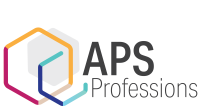We use various capability frameworks to apply structure and understanding to the vast complexity of people capability. Examples of some of those frameworks are below.
Contents

APS Professions capability model
We use a capability model to help explain the different skills, knowledge and personal attributes that combine to make up someone's overall capability.
Professional skills relate to someone competently performing activities in a specialist area of application to achieve organisational outcomes. Sometimes referred to as technical skills, these are skills that are only found in certain pockets of the workforce. Computer programming is an example of a professional skill.
General workplace skills relate to someone competently performing activities that are commonly performed across the workforce. Sometimes referred to as transferable skills, this includes what is often referred to as literacy and fluency skills. Minute taking is an example of a general workplace skill.
Behaviours relate to the personal abilities that someone expresses in the workplace. Sometimes referred to as attributes, social skills, interpersonal skills, soft skills, common skills, power skills etc. Communicating with influence is an example of a behavioural skill.
Experience is what someone gets when they apply their skills, knowledge and behaviours in the workplace to achieve a task or outcome, and through experience people can build their skills and knowledge. Producing a certain product for a high-profile customer would be an example of experience.
Knowledge relates to information that someone needs to possess to perform a skill competently. It may include methodologies, standards, history, context, and insights as well as facts. For the example of programming a computer, someone would need to know a programming language.
Qualifications and certifications are a mechanism for providing people with assurance that an individual has one or many of the aspects of capability described above.
Data Capability Framework
The Data Capability Framework (DCF) provides a common language for defining capability areas across the data lifecycle within the Australian Public Service (APS). Each capability describes the expected skills, knowledge and behaviours that span across 7 levels of responsibility.
In 2025, the DCF was updated to align with the Skills Framework for the Information Age.
Who is the DCF for?
The DCF is relevant to everyone in the APS who works with data in some way, whether generalists or data specialists. The DCF can help all employees and managers to identify data capability needs or strengths, prioritise training and development, and guide career progression.
Skills Framework for the Information Age (SFIA)
The Skills Framework for the Information Age (SFIA) is a global standard that defines digital and other ICT related skills.
SFIA is used by government agencies, private enterprises and individuals for workforce planning, recruitment and deployment of staff, career path frameworks, skills assessment and more.
The Australian Public Service Commission (APSC) has purchased a whole-of-country SFIA licence that allows Australian individuals, public sector and private sector organisations to use SFIA for free.
Find out how you can access and use SFIA.
SFIA can be used by many professions, not just digital
While SFIA was initially designed for the digital, IT, and software engineering community, its professional skills are relevant beyond these fields. Its universal applicability allows it to be extended into various knowledge-intensive or technical professions.
SFIA’s levels of responsibility facilitate the integration of different professional work, providing a common foundation for mapping frameworks or aligning an organisation’s structure with the SFIA framework.
For example, here’s how the SFIA skill levels align with the APS classifications:
| SFIA Level of responsibility | APS Classification |
|---|---|
| 1-Follow | APS 1,2,3 |
| 2-Assist | APS 4 |
| 3-Apply | APS 5 |
| 4-Enable | APS 6 |
| 5-Ensure/Advise | EL1 |
| 6-Initiate/Influence | EL2 |
| 7-Set Strategy/Inspire | SES |
Learn more at the APS Academy’s SFIA 101 course.
